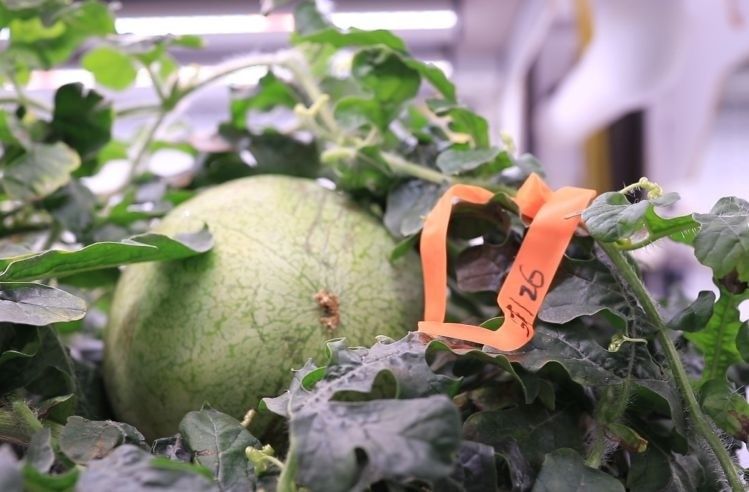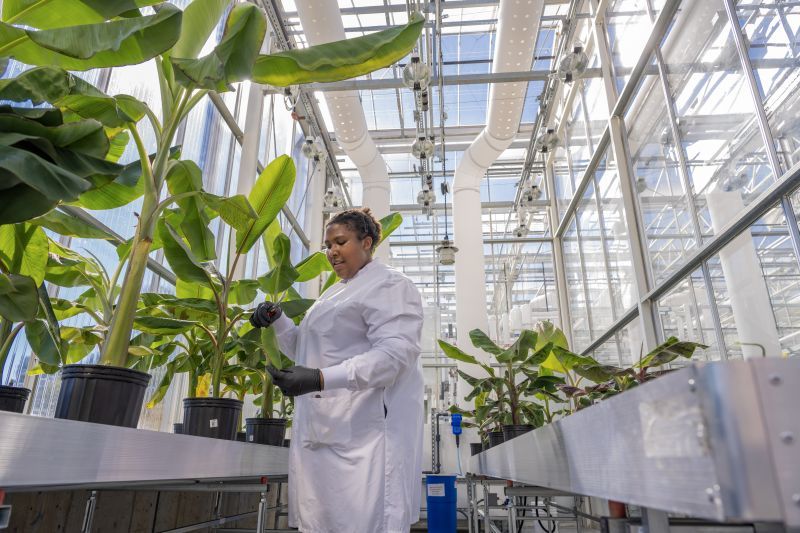North Carolina-based Elo Life Systems has closed a $20.5 million Series A2 round to accelerate the development of a natural high-intensity sweetener and Cavendish bananas engineered to resist the devastating Fusarium wilt fungal disease (TR4).
The financing was led by existing investors Novo Holdings and DCVC Bio. They were joined by AccelR8, Hanwha Next Generation Opportunity Fund, and Alexandria Venture Investments, taking Elo Life’s total funding to $45 million.
The capital injection will help the startup scale and commercialize its sweetener, increase its pipeline, and expand its crop protection and productivity efforts.
High intensity natural sweetener
Elo Life—which was spun out of biotech firm Precision Bio in December 2021—deploys a variety of plant breeding technologies including a propriety gene editing platform called ARCUS.
It is best known for its work with Dole to retool the DNA of the ubiquitous Cavendish banana variety to resist Fusarium wilt (TR4). However, its first product is a plant-based high intensity sweetener (mogroside V- 200-300x sweetener than sugar), which has historically been sourced from monk fruit, a type of melon that only grows in a remote area of China, putting its price tag out of reach for many food and beverage manufacturers.
Elo Life is able to express mogroside V and related sweet components in a range of plants that are less expensive to grow, from watermelon to sugar beet. In the case of sugar beet, there is already an established infrastructure to process ingredients from the crop (sugar, molasses), which would not be negatively impacted by the addition of a process to extract mogroside V from the molasses stream, CEO Todd Rands told AgFunderNews.
Separately Elo Life has also contracted with US growers to produce watermelons containing mogroside V, which will take production closer to end markets and make the natural sweetener more broadly available.
Aside from the benefits of domestic production, Elo’s sweetener also has a superior sensory profile, claimed Rands, who said monk fruit extracts on the market today typically provide mogroside V at about 55% purity, but also contain impurities and an assortment of other mogrosides that can negatively impact taste. “Elo’s products achieves a high level of mogroside V without all the other impurities and other mogrosides, leading to a cleaner taste profile.”
The plan is to introduced a liquid sweetener from watermelon juice in 2026 and powdered sweeteners from sugar beets in 2027, said Rands. “We’re also looking at sweet components that even have higher potencies in terms of sweetness or more favorable taste characteristics so that we have a portfolio of sweeteners. Some will be blends and some of them are going to be in pure form.”
Regulatory status
In both instances, Elo is going through USDA’s process for growing genetically modified crops. Separately, the sweeteners will go through the FDA’s GRAS (Generally Recognized as Safe) process in the US, with self-GRAS status expected in 2025 followed by a notification to the FDA in order to secure a coveted ‘no questions’ letter.
Labeling is yet to be determined, said Rands, who said food and beverage companies had been looking for more options in the natural sweeteners space for years (currently the only two options in the high-intensity sweetener space are pricy monk fruit extracts, and stevia, which still presents taste issues).
“Every food and beverage company is trying to reduce sugar, and they want ingredients from plants, so the two main questions we get are how much can we get and when can we get it? We’ve got some partnerships I expect we’ll be announcing this coming year with some household names.”

Cavendish bananas resistant to fungal disease
Elo’s work to develop Cavendish bananas that are resistant to the Fusarium wilt fungal disease threatening global banana production has a slightly longer time frame, but is potentially very exciting, said Rands.
While some other startups are working on TR4-resistant varieties of Cavendish bananas, which account for 40% of global production, nothing has yet been commercialized, he claimed.
“It’s an active area for discovery. You’ll hear some noise about a new variety that has some resistance, but when big players get it out in the field and test it, they say it doesn’t deliver, or at least that’s what our partners tell us.”
Elo has been exploring both classical GMO techniques and gene editing to confer resistance to TR4, said Rands, who said the tech is now being tested in field trials with Dole in Central America. “The first wave is GMO and the second wave is using gene editing.”
If the field trials are a success, he said, a licensing model will likely follow. “Dole is our commercial partner so would be the one commercializing it and making sure that the solution is broadly available, as there’s a recognition that this is an industry problem.”
He added: “On the back of this work, we’re now seeing a lot of interest from other companies dealing with challenges in similar kinds of crops that want to use gene editing tools to solve disease problems and climate change issues. And we can charge fees for research projects, which is another way of generating revenues before our own products come to market.
“Commercializing food ingredients takes time, so in the meantime, you need to continually find sources of revenue and funding wherever you can.”
- Todd Rands will be speaking at the World Agri-Tech Innovation Summit in San Francisco, March 19-20 in a session called ‘Navigating Commercial Opportunities for High Value Crops & Ingredients‘ (March 19, 2.10pm) alongside Christy Toedebusch at Ohalo Genetics, Tom Adams at Pairwise, and Shimpei Takeshita at Sanatech Seed. To find out more about the international event, which attracts 2,500 agtech decision makers, and includes themed breakout sessions, start-up pitches, investor sessions, and networking lunches, click here. Book now and save $879 on your pass with the discount code: AGFUND10.






